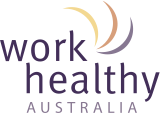
When you think about everyone you know – family, friends and colleagues – chances are one of them may be struggling with life.
By having meaningful conversations about the ups and downs of life, you could make a difference and help someone feel connected and supported before they are in crisis.
You may feel like something is not quite right with someone you know or care about. They may not be behaving as they normally would or they may be doing or saying things out of character.
There are many indications that someone may not be coping. Actions you can take to identify this may include:
Listening to what they are saying:
- Concerned about the future
- Feeling trapped
- Feelings of hopelessness
- No sense of purpose
- Irrational and confused
- Loneliness
Observing their behaviours:
- Withdrawing from friends, family or society
- Dramatic mood swings
- Loss of interest in the usual hobbies
- Lack of self hygiene
- Acting recklessly or engaging in risk-taking behaviours
- Altered sleep ie. inability to sleep or sleeping all the time
- Increasing substance use
Considering what’s happening in life:
- Relationship issues
- Financial hardship
- Major health concerns
- Loss of loved ones
- Workplace stress
- Constant stress
- Not coping in the current climate
Preparing to ask, “Are you ok?”
Before asking, consider whether you are in a good headspace and if you can give them as much time as needed. Select an appropriate time and place to have a conversation to ensure that it is at a time that suits them and that you have privacy.
When preparing to have a conversation with someone, be prepared for their answer to be, “No, I’m not ok.” Conversely, you also need to be accepting that they might not be ready to talk or they may not wish to talk to you.
How to ask, “Are you ok?”
Often people don’t feel comfortable asking “Are you okay?” because they don’t know what to say. It is more important to be respectful, genuinely caring and treat the person with dignity than saying “all the right things”. When speaking with them, ask open-ended questions such as “How are you going?”. When discussing your concerns, mention specific observations about their behaviour.
If they choose to talk to you:
- Listen to what they have to say and avoid interrupting or rushing them
- Acknowledge their experiences
- Show empathy for their situation
- Ask questions that show you care and want clarification
- Re-state what they have said to show you understand
But what if they don’t want to talk?
Let them know you care about them and are concerned for them but avoid using guilt or criticising them. Explore the possibility of them talking with someone else instead. If they still don’t wish to talk to anyone, let them know that if they change their mind in the future about talking, they can contact you.
How to respond to the answer, “I am not ok.”
If someone says they are not okay, be supportive, compassionate and empathetic. Being supportive can include many things such as; providing information about the help that is available, offering them practical help with daily activities or simply asking them how they would like to be helped. They may have had these feelings in the past, so it can be beneficial to ask them if they have felt this way before. If they have, ask them what has helped them previously.
One of the symptoms when someone is struggling can be a sense of hopelessness. Let them know that with time and treatment, they can start to feel better. People are more likely to seek professional help if someone close to them suggests it – so ask them if they have considered professional help and if they would like some information. You can let them know about the options for support and help them seek assistance if they would like it.
What next?
After having the initial conversation with someone, it is important to follow up regularly with them. Check in from time to time to see how they are coping and encourage them to continue seeking help. Be consistent and predictable with your interactions with them. You can also encourage them to explore other supports like self-help strategies or support groups.
Mindfulness exercises
Mindfulness is a useful self-help strategy that has been found to have benefits for mental health, wellbeing, and help people cope with stress or anxiety. Mindfulness is the practice of being present and learning to keep your attention where you want it to be, whilst stepping back from strong emotional reactions and seeing things more objectively. This typically involves practising meditation regularly, and just like meditation, the more you practise it, the better you will be at it.
Smiling Mind is an Australian mindfulness app with many different guided sessions to choose from. It can suit the beginner or those who have been practising mindfulness for some time now. Whilst mindfulness can be a great way for people to help cope, it is still recommended they consult with their health professional for appropriate help.
And remember – asking someone “are you okay?” this R U OK? Day could change someone’s life.
If you or someone you know is struggling, please consult your GP or call:
- Lifeline 13 11 14
- Beyond Blue 1300 224 636
- Suicide Call Back Service 1300 659 467
- MensLine 1300 789 978
- Kids Helpline 1800 551 800
- 13 Yarn (Aboriginal and Torres Strait Islander support) 13 92 76
- Q Life (LGBTI support) 1800 184 527
Sign up to our monthly enewsletter
"*" indicates required fields
